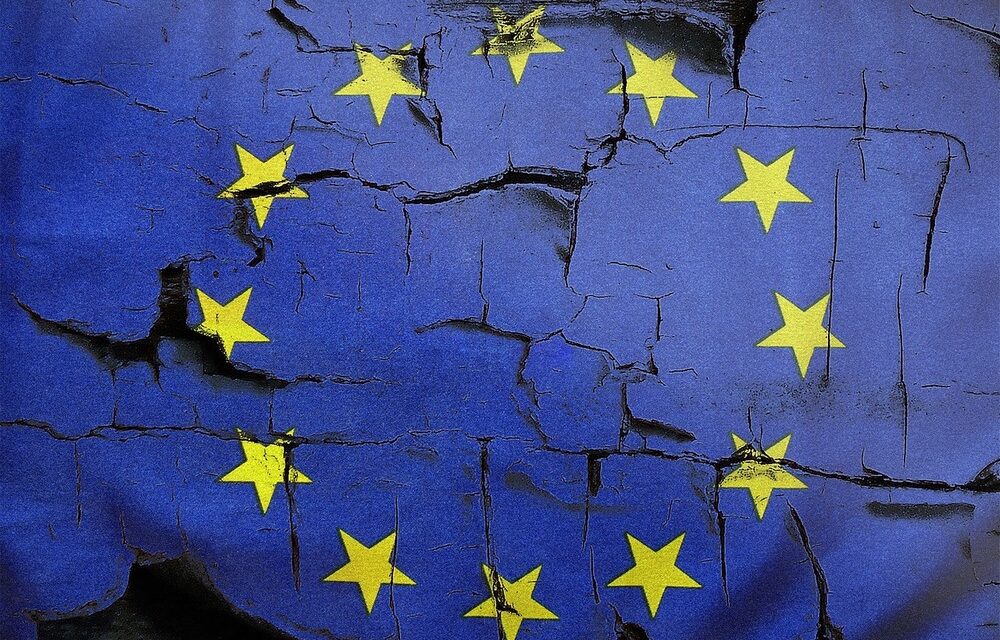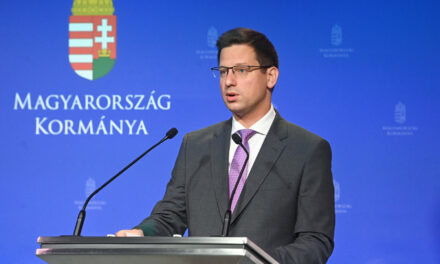Even before the EU accession in 2004 (in the 2003 referendum), a large majority of participants - 92.46 percent - voted in favor of Slovakia joining the EU.
The more skeptical could now say: good, good, but the bar was very shaky, with 52.15% we just crossed the limit of validity. Of course, they are also right, but it is still a fact that this was the only successful referendum in the history of Slovakia, and since then no referendum has managed to cross the magic threshold of validity. Back then, the country was significantly more Euro-optimistic than it is now. At the time of Slovakia's accession to the European Union, it enjoyed great popularity among Slovakian citizens, and European institutions retained their credibility for a long time. The wealth of the country, as well as ordinary people, greatly appreciated the help of the union after the fall of Mečiarism and the beginning of the country's democratization. Comenius University's political scientist Anita Világi said in an interview that
Slovakia has been placed in the position of a guardian of democratic values and the rule of law, which was positively evaluated".
Where did we come from?
EU membership also meant hope for a better life and economic development. The opinions that Slovakia should not have joined the European Union were completely irrelevant at that time. At that time, Slovakia was considered to be a significantly Euro-optimistic country.
But let's see where we got in 20 years and why! According to comparisons of Eurobarometer surveys
the peak of our euro-optimism was in 2009-2010 after the introduction of the euro.
At that time, 71 percent of the participants in the survey still believed in the union, which was the highest positive rate among the member states at the time. Then came the Greek loan, the rescue package, in which Iveta Radičová's right-wing government eventually fell, and trust in the union decreased drastically - it fell to 48 percent, but it was still higher than in the majority of EU member states.
The original, maybe a little euphoric optimism - when we still thought that the fences in the West were made of sausages - quickly evaporated. The sausage theory disappeared, and people's exaggerated ideas about the union took on a much more realistic form.
The advantages of the union were still appreciated, but in the 2010s voices criticizing Brussels also appeared in the public discourse.
Moreover, some political parties shaped their political profile directly to this and became more and more Eurosceptic (for example, the SaS), and the extreme parties directly talked about leaving the union (ĽSNS).
And our trust in the union increasingly approached the national average, reaching its historical low in 2022, when it was only 37 percent. Of course, domestic political events also contributed to the loss of trust at that time, primarily the low popularity of the Heger government, but also the outbreak of the Covid epidemic and the Russian-Ukrainian war.
However, it should also be mentioned that trust in the EU climbed again last year and reached the EU average of 48 percent.
We love it and we don't
Surveys also show that people have much less trust in domestic political institutions than in European ones. The highest level of trust (48%) was in the first government of Robert Fico, and the lowest (14%) in the government of Eduard Heger. In addition, there is hardly anyone in Slovakia who can say the name of the president of the European Commission or the European Parliament offhand.
Seven out of 10 people say that Slovakia would be worse off if it were outside the European Union.
"This can also have an impact on greater trust in European institutions," Világi believes.
It is also a fact that the reasons why people respect our EU membership have also changed in 20 years. The main reasons are no longer democratic values or a better standard of living than when we entered the country, people now value the possibility of, for example, free travel or studying and working abroad much more. More than two-thirds of people consider these to be a positive influence of the European Union.
However, according to a survey, 40% of people believe that the standard of living here can be explained by the bad influence of the European Union, and 41% of them think that it does not have a good effect on the social situation of the residents either.
According to political scientist Grigory Mesežnikov, this is because Slovaks compare their country to more developed countries. "But the incomplete knowledge of what Slovakia has achieved during this time in the economic field also plays a role," believes the political scientist, who believes that if Slovakia had not become a member of the union, it would be in a much worse position now. According to him, the fact that Slovakia has fallen further behind the West in recent years is caused by the bad economic policies of individual Slovak governments.
For example, Aneta Világi was also surprised by the fact that
European resources are often perceived by people as a negative factor of EU membership.
"Because the political elite often associate European sources with corruption, excessive bureaucracy and the inability to absorb them," says the political scientist. Even consumer protection is rarely taken by politicians as a positive example of European regulation. Rather, they propagate opposing views. For example, the EU is criticized for its double standards for the quality of food and products.
Mesežnikov also draws attention to the stereotypes and myths related to the Union, which, according to him, are not based on the truth, especially lately they appear more and more often in the public discourse.
An example of this is the claim that the Union does not count on small states and that larger states impose their will on us. According to Mesežnikov, the opposite is true.
“Smaller states are favored because of their size,” he says.
And this feeling may even be decisive, because it may cause us to ignore the European elections again. This can also be helped by the fact that Euroscepticism has recently become a stable rhetorical tool of populists. While they do not formulate any factual criticism of the European Union, they do not even demand the exit of their country from the Union, nor do they want to fundamentally change European policies or processes. They just want to win an election, for which undermining Brussels seems to be a suitable tool...
Featured Image: Pixabay













